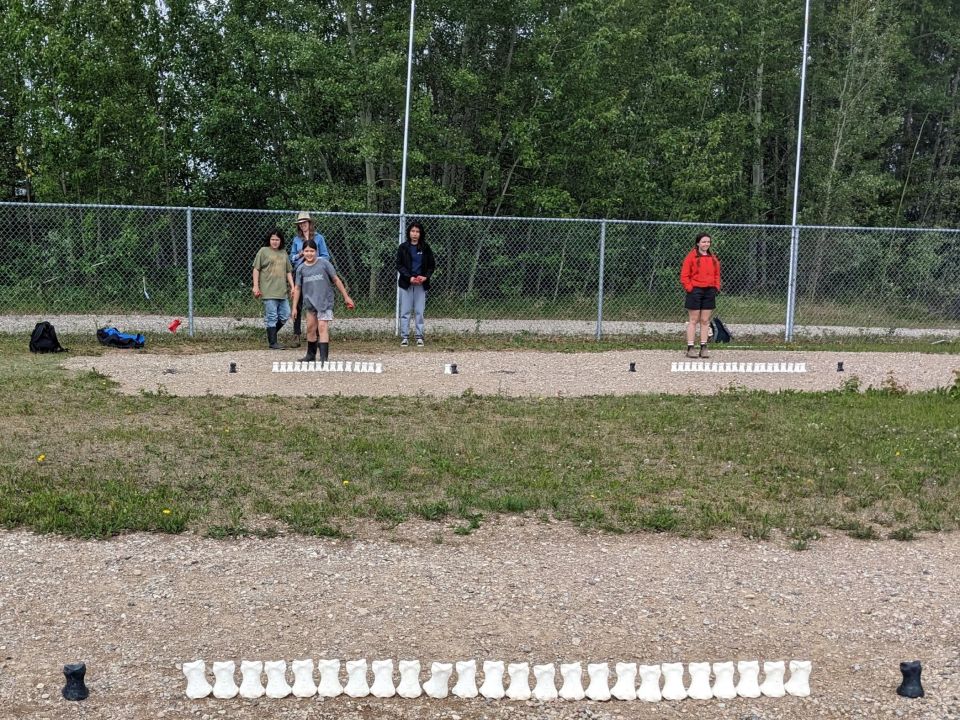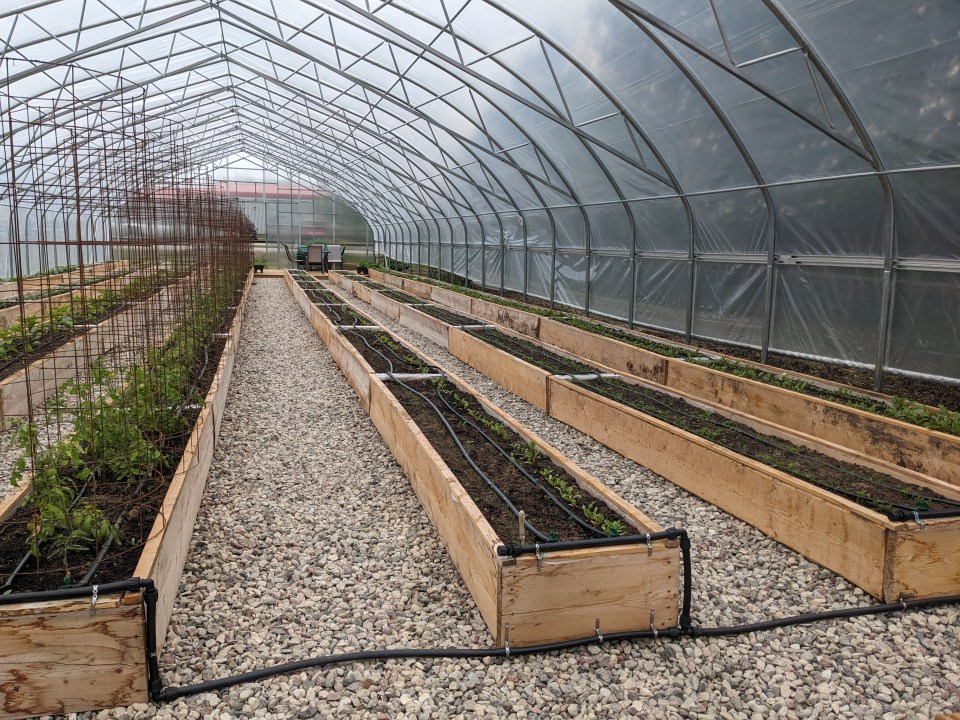Not much survived the 2023 wildfire that struck Enterprise head-on, but the community garden pulled through. This year, the hamlet plans to grow fresh vegetables for residents.
The wildfire that burned through much of Enterprise left unscathed two greenhouses that make up the community garden.
“We’re planning on doing vegetables that will be able to be used by the community,” said the hamlet’s senior administrative officer, Blair Porter. “When everything is ready to be harvested … we’ll share what we have.”
The hamlet welcomes people who want to tend their own garden plot, and provides seeds and some equipment. The greenhouses have irrigation systems to water plots.
The first greenhouse was built some time before 2019, Porter recalled, with the latest additions completed in 2022.
For the past few years, Enterprise has partnered with Wilfrid Laurier University, whose students help projects in various NWT communities.
In Enterprise, that means students working in the garden, organizing activities and helping the community to establish garden-friendly projects.
Porter said recycling, composting and waste reduction are programs Enterprise wants to work on next with the students.




“We can promote healthy lifestyles and provide programs that can benefit in other ways, that perhaps could help their pocketbooks,” Porter said of the importance to residents of this kind of initiative.
“That’s one of the main reasons why we did it, is to help them with the rising cost of food and, honestly, getting something from the ground.”
Andrew Spring, an assistant professor at Wilfrid Laurier University and Canada Research Chair in northern sustainable food systems, did similar work in Kakisa before the Enterprise collaboration began four to five years ago.
“If you were to go to Kakisa, you would see students living in the community and supporting the community in a whole lot of different things,” Spring said.
“We’re really emphasizing supporting the community achieving their vision for food security or sovereignty.
“In a place like Enterprise, it’s really just having community events around the garden and holding workshops to bring people out, have a conversation and feel like they’re part of it.”
In the past, Spring said, projects can falter when someone starts one but then leaves the community for whatever reason. The best approach, he said, is to ensure residents “feel like they have ownership over it.”
Before the fire last year, Porter recalls students coming to the community once or twice a week to help out. The hamlet also hires a gardener to head the project throughout the summer.
Porter had hoped to gather some data on the vegetable yield and impact on residents at the end of last season, but will do so this year instead.
“Last year, had it not been for the fire, we actually would have had a pretty good crop,” Porter noted.
But the vegetables from last year’s garden didn’t go to waste, he added.
“The stuff that was in the community garden last year, it was used by firefighters,” he said. “So, I mean, there was some benefit that came out of it.”
“Self-sufficiency, health, sustainability, all these things are on folks’ radars,” said Spring.
“We’re here for the long-term to support the community to build on this. For a place like Enterprise that went through so much last year, it’s really important to make it so that the garden is a positive hub.”
Without really meaning to, Cabin Radio finds itself running a series on the community gardens of the North. Here are more articles to explore:
Doing something related to gardens or gardening? Let us know here.











